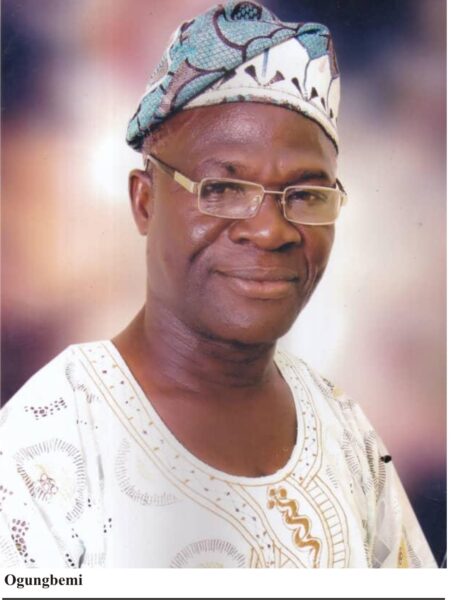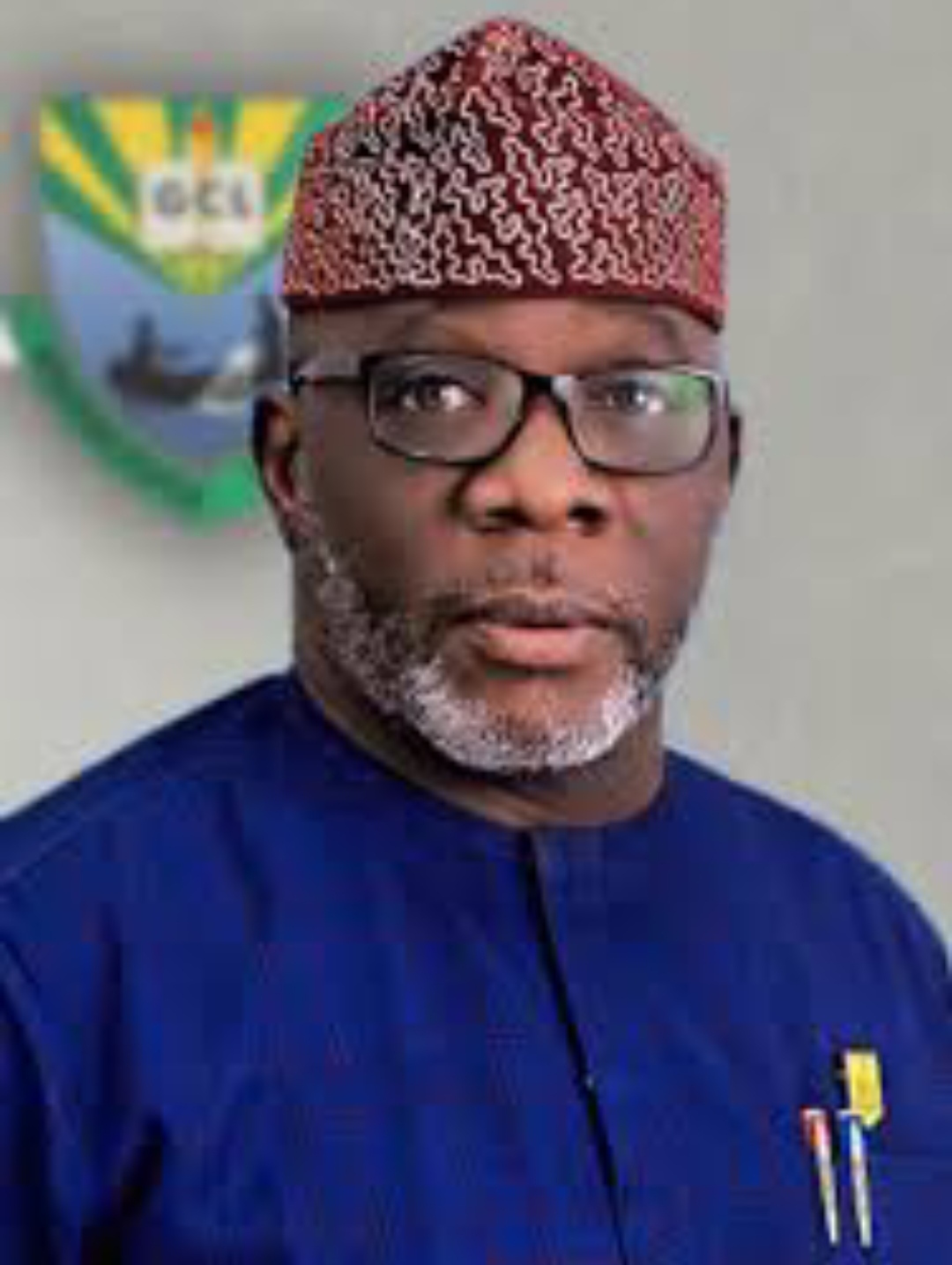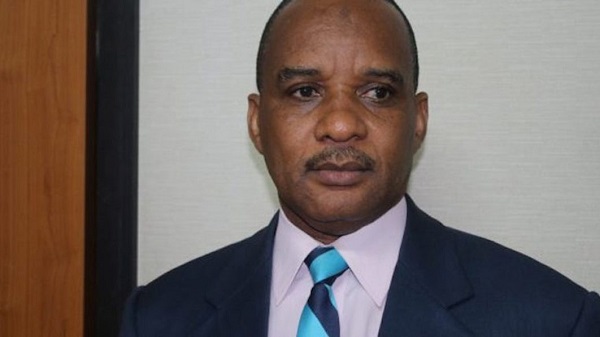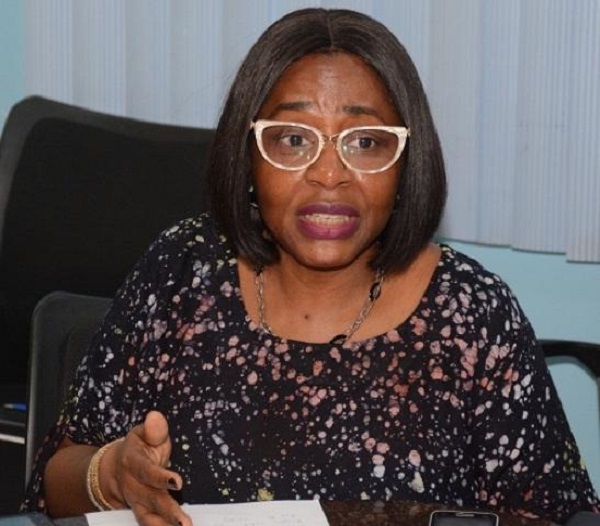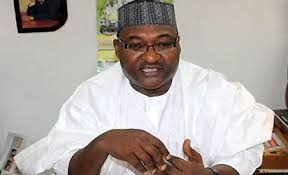National Single Window Network: Our Experience In Ghana- Sylvia Owu, Deputy CEO, GSA
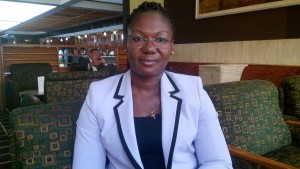
Ms. Sylvia Asana Owu is a mother of 3 “soldiers”. She is wet with humility, obsessed with doing good and romances, very passionately, her profession. She is the deputy Chief Executive Officer of Ghana Shippers’ Authority (GSA). In this encounter with MMS Plus, She shares her shipping experience in Ghana. She talks on the on-going national single window project ,rail connectivity in Ghana, among others but called for intra-African trade among countries for industrial growth. Excerpts:
Is this the first time you are attending the maritime seminar for judges in Nigeria?
This is the first time I am attending the programme in Nigeria. I Know that my chief executive officer has been a regular participant in time past in the seminar. I know that he has had the opportunity to even present papers. I must commend the Nigerian Shippers’ Council for this wonderful initiative. I can recall that they started this programme in 1995 and this is the 14th in the series. They deserve commendation for this wonderful initiative. I must also say that Ghana has been inspired to start a similar seminar to update the judges and the entire judiciary with happenings in the industry. It bridges the gap between the maritime commercial centers and the judiciary. Personally, being here for the first time, I learnt a lot. I enjoyed the issues and topics discussed especially the electronic evidence in the maritime sector. Whether we like it or not, it has come to stay.
It also gave me an insight into the instrument that set up the Nigerian Shippers’ Council and the need to update the legislative instrument of the day with the realities of the day. We all agree that the Nigerian Shippers’ Council has overgrown what it was originally set up to do so, there is the need to bring it up to date. I am happy that Nigerians are looking at it seriously.
In Ghana, we have become Ghana Shippers’ Authority (GSA). It was not due to our own making but the government at that time in 1998 realized the need to look at the various councils that were asset up in the country vis-à-vis their activities, their current roles and functions, whether there was need to move them from council to authority .That was how we became an authority and it is helping a lot. I believe that when the Nigerian Shippers’ Council moves from council to a more appropriate institution, it will enhance their operations.
Is this the first time you are coming to Nigeria?
No. This is not the first time but this is the first time I am attending the programme
How many times have you been to Nigeria?
I have been for like four times
What is the difference between when you were a Council and now that you are an Authority in terms of service delivery?
In fact, before we became an authority, we had grown beyond the council. For instance, we had moved away from advisory issues. We had gone with the education of shippers, infrastructure provision because we know that shipping goes beyond providing advocacy. We moved into the industry to identify key issues that we thought government should pursue.
I understand that Ghana is having a problem with the implementation of the Advanced Cargo Tracking Note (ACTN), and that you were making efforts to get a legislation to back the implementation. What is the situation?
In Ghana, we call it Advanced Shipment Information (ASI) because we believe that it goes beyond the tracking of cargo. By this, we are of the view that it is very important for the shipper to have advanced information prior to the arrival of the vessel in good time so that by the time the vessel arrives, he would have gone through the necessary procedures. All you have to do is spend a minimum time in taking delivery of your cargo from the ports. So, the Ghana Shippers’ Authority has been a strong advocate of ASI which is known as cargo tracking note in other jurisdictions. When we started the initiative, we realized that our law at that time did not give us the mandate, so what we did was to send a proposal to the parliament for them to allow us to carry out the ASI and other activities we thought were necessary in promoting the best of shippers in our country. We had a bit challenge in carrying out the ASI. Obviously, when you are bringing something new, some people will protest regardless of whether they understand it or not. So, we have not given up but it went as far as the presidency and we were advised to hold on with it because as a country, we were looking at implementing the national single window, which calls for the integration of ASI. So, it is not like it was rejected out- rightly. It was kept in abeyance. But the good news is that as a country we have started the process towards the implementation of national single window. So far, it is going very well. There are three phases in the process. The first is the fact that the Company concerned, West Blue Consulting, will take over the functions of the designation inspection companies and the other allied services by the Ghana regulatory authority. The first phase is through and they have taken over the functions of destination agencies.
The second phase is conducting the need or gap analysis because a lot of agencies are involved in the national single window project. There is also a technical committee that has been put in place involving all these agencies. So, there is a technical committee which includes the Ghana Shippers’ Authority. They are about 20 institutions involved in the implementation of the single window project. So, this phase entails doing the gap analysis of the various institutions that will be coming on board. This is important because some of the functions of the agencies are repetitive. For instance, an agency requests for information, another agency will request for the same information. The gap analysis will reveal the key information that are required and make it possible for all the agencies to access them when put in the system. They have done this and I think the report is out and now that the report is out, I am sure they will be moving into the next phase. So, the processes for the implementation of the national single window are going on well. I am hopeful that very soon, we will be implementing it.
So what this means is that the ASI will be subsumed into the single window initiative
That is right. The credibility of the information that is put on the national single window is very important. We believe that it is key because when it is done, there is no way a shipper can doctor any information. The shipping line or agency cannot tamper with the information therein. It may not be 100% error proof but it should have some credibility. We are looking at a situation where before a cargo is shipped, the information would have been in the system. By the time the vessel comes here, which will probably take two weeks to three weeks, all the various stakeholders can access the information to process whatever the document they need. You don’t have to wait for the vessel to arrive before you start processing your documents. The consequences of this are : congestion, demurrage, delay at the port. With the information accessible to all agencies, they will process and give you your certificate and when the goods come in, there will be no need for you to spend days at the port trying to clear them. We think that in the long run, this is going to benefit us and also help our port.
How do you see the ECOWAS common external tariff implementation?
Like you rightly said, common external tariff is an ECOWAS project. Whether we like it or not, we belong to a community and when we believe that this is the way to go it is important for us to embrace it even though it may not be easy
As I said earlier, introducing something new is never easy for people. In Ghana, it has not been easy. There was a lot of misunderstanding about the CET but I know you know that even in Ghana, we have delay in its implementation. So there is really no turning back in this. What we have to do is to get our people to get to understand the CET because it is not entirely bad. It has both its disadvantages and advantages. So, what we are doing at the Ghana Shippers Authority is to intensify the education and we have worked closely with the Customs and we have gone round the country, we have gone to the border areas and inlands. We have shippers committees, associations all over the country. We have visited most of these committees and associations and educated them on CET so that they will be able to join other ECOWAS member citizens in the operation of the scheme.
What is the problem in West Africa? No Country has a national carrier either for the air or sea transport. Why is Ghana lacking this?
(Laughs) You should be throwing this question to my Minister. I think that having a national carrier has its advantages because shipping is growing and inter- African trade is also growing. So, if we have our national carrier, we will appreciate where we are coming from and make things a bit easy for our people. Once you rely on these international carriers, you have no negotiating power. If we as a region have a national carrier, we will know the challenges our people within ECOWAS are facing. With this, we will be able to come up with modalities on where we are headed. But when you are dealing with the international carriers, it is difficult for them to appreciate your vision as a country. They only think of the monetary gains and end up making things very expensive for our people. However, I think an effort is being made in that direction. There is a plan by the ministry of transport in Ghana to get an airline for the country. On the sea side, no such plan exist but I have heard that some individuals are coming together under the ECOWAS umbrella to have a regional carrier called Sea links. This is very encouraging. If, as individual countries we cannot do it, and investors within the country are doing it, they should be encouraged to do that.
Do you have any deep Seaport in Ghana?
We didn’t have actually but Tema port is in the process of having a deep seaport.
That seems to be the trend now, every country and state wants to have one
Yes, it is because of the draft. Everybody wants to have a bigger vessel. In Nigeria, you have a lot of them.
It is not having many of them of that is the issue but their viability. What counts is the volume of cargo and the ship traffic. Can they all maintain the ports without cargo?
I think we should be promoting inter-Africa trade. We should be talking about removing the barriers to trade in our various countries. I was in a Nigerian shop while in Nigeria. I was amazed at the things we can buy and send to our country. We have these things, yet we travel abroad to Dubai, Paris to buy things we can find in Africa. So, we have to open up our borders and allow people to trade freely and then we can develop our industries, generate revenues for our countries and the people. Sometimes, it is not easy accessing countries in Africa with cargoes. You have the border huddles and checks.
But it is like we keep having conferences and seminars on these problems and at the end of the day, the problems are still there. What do you say about that?
I disagree with you on the point that we don’t come out with anything .May be the pace at which we implement some of the resolutions is what we should be looking at. Of course, something comes out of them. I don’t think you will say that for the maritime seminar for judges that is in the 10th edition now. It is the pace and I am very hopeful that with time and sensitization we will get there. You know sometimes when you start something and you talk more and more about it, it comes with effect. So, we don’t have to stop because it is not yielding the desired effect that we need now. We should keep doing it.
Do you have cabotage policy in Ghana?
No, we don’t
Here we also talk about promoting cabotage in Africa, how that works out we will see. Again, how much of the intermodal transportation do you have in Ghana?
Talking about intermodal transportation, of course, in shipping, you need all the modes to transport your goods at competitive rate. In Ghana, we depend more on the roads transportation but I think we can do better because you cannot promote business without the rail transport.
It is expensive by road, apart from the fact that it destroys the road over time. We have those challenges in Ghana. You know we provide services for the land-locked countries. We realized that it affects our roads. For me, what we need to be looking at is promoting rail transportation. It is cheaper. We have rail in the western region and that is, the southern part majorly for export. We have mineral resourses deposit at the West so we use the rail to transport them for export through the port. Imagine having a rail network across Africa, it will make trade easy because you will not have customs officers opening your bag at every point in the name of checking something. So, there is plan to extend this rail network in the Western region in Ghana to the Kumasi, where the bulk of our import are. We also know that it is capital intensive and makes it difficult for government to sometimes build rail line. So, it requires partnership with private sector. There are plans for this, as studies have been done and they are entering the next phase. I will be happy to tell you that we now have more rail network in Ghana the next time we meet.
Have you thought of a maritime bank in Ghana?
It keeps coming up but we don’t have it. We have Exim Bank
Now Ghana used to be Gold Coast, what has happened to the gold, do you still mine and ship them?
(Laughs)Yes, we still mine Gold. There are companies in Ghana are into that. To answer your question, we still have gold and companies are mining them under concession agreement.
Madam Sylvia is married and have how many kids?
(Laughs) I am not keen on using” Mrs”. Address me as Ms. By the way, are you going to publish this?
Well, you read the hard and soft stories together as long as it does not negate morals
- I am married with three boys.
How is Oga?
Oga is fine.
Is he also a maritime professional?
No, he is a pharmacist
How do you manage the work and the home?
It is not easy but you have to balance it, It all has to do with time management.
Hope he has not complained
No, he is very supportive. He is enlightened and he is the type that believes that the sky should be the limit for women. Even sometimes, I would be a bit hesitant at doing some things, he would encourage me to go on. He gives me all the support that I need.
What is the ratio of Men- women in your authority?
I think now, it is improving. When I joined shippers Authority 23 years ago, we had very few women in our organization. On a lighter note, we didn’t even have a toilet for women in those days . You go in and all you see is male. I remember the first time I went to a wash room; I saw a male who was surprised to see me. That tells you how the situation was 23 years ago .Now we have more women of higher positions. What we had then were secretaries. I was among the first few graduates that were taken 23 years ago. I also give credit to the men in the organization.
Sometimes when you are working with men who appreciate the capabilities of women, they encourage them and bring them up and these are the type of men I work with in my organization and I must always give credit to them. Now, we have more women even at the higher levels. I think 40% of the management team are women.
Do you belong to WISTA?
Yes, I belong to WISTA, Ghana
How many people would you say you have mentored in GSA?
I have been on this, even people I work with in my office like to call me mummy. I like to see people develop their potentials. Looking at where I am coming from and where I am now, I always see the potentials in everybody. My dad was a police man. I lived in a barrack. I carried things on my head, selling everywhere and look at where I am today! God has been good. It does not come by just sitting and crossing your legs, it comes with hard work, being determined with a belief that you can do it. So If I see person on the street, a child on the street, I see potentials in the child because am a living testimony.
So, I don’t discard anybody. I have a natural spirit. I am a mother, I like people. That is what keeps me going.



